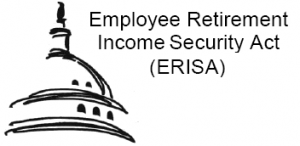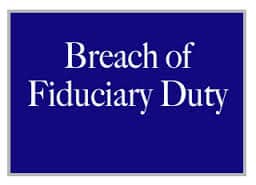Two men each hold a 50 percent interest in numerous corporations and limited liability companies. One of the men, the plaintiff, sued the other, the defendant, for various causes of action alleging misconduct and breach of fiduciary duty. The involuntary dissolution claim seeks the appointment of a receiver to take possession of all of the […]
Suspended Corporation Could Not Have Its Cake And Eat It Too.
After a man left his employment at a retirement home, he filed a claim with the Labor Commissioner, who awarded him $131,096.77 for unpaid wages. The retirement home appealed the Labor Commissioner’s order to the Superior Court, posting an undertaking. The man moved to dismiss the appeal, arguing the retirement home lacked the capacity to […]
Class Action Against Company Over Pension Plan To Go Forward.
After the value of a manufacturing company’s common stock fell, plaintiffs filed a class action under the Employee Retirement Income Security Act [ERISA; 29 U.S.C. § 18] against the company and its board of directors, alleging defendants breached their fiduciary duty under ERISA. The federal district court dismissed the company on the ground it was […]
New Trial Ordered In Breach Of Fiduciary Duty Action; Limited To Remedies Only.
Preferred shareholders in a now-dissolved software company brought action against the company’s chief financial and chief executive officers, contending they colluded to secure a preferential sale of the company’s assets to another company, thus violating their fiduciary duties. The court, after a bench trial, concluded the two had committed a breach of fiduciary duty, but […]
Lack Of Capacity Of Limited Partnership & Corporation.
In a California Environmental Quality Act [CEQA] case, plaintiffs, a limited partnership and two corporations voluntarily dismissed the action on May 9, 2013. The trial court awarded the defendant $37,528.14 in costs for preparation of the administrative record. On the appeal of the court’s order to pay costs, there was a motion to dismiss the […]
Summary Judgment In Favor Of Holding Company Reversed; Trier Of Fact May Infer It Is An Employer.
A plaintiff filed a class action on behalf of himself and other certified nursing assistants for unpaid minimum wages and overtime wages. He contends defendant, a holding company with no employees, is the alter ego of a nursing facility where he worked and its “corporate veil should be pierced.” The trial court granted defendant’s motion […]
Under The Religious Freedom Restoration Act, Closely Held Corporations Are Excused From Obamacare’s Contraceptive Mandate.
The United States Supreme Court was called upon to decide whether the Religious Freedom Restoration Act of 1993 [RFRA] permits the United States Department of Health and Human Services [HHS] to demand that closely held corporations provide health insurance coverage by methods of contraception that violate sincerely held religious beliefs of the companies’ owners. One […]
Lawyer Personally Responsible For Law Corporation ’s Debt.
A law corporation obtained a business line of credit from a bank in 1997. The law corporation defaulted on the loan in 2008. The bank brought an action against the law corporation and obtained a judgment against the law corporation. The bank later asked the trial court to add the lawyer as a judgment debtor, […]
Hospital’s Peer Review Process Meets Whistleblower Laws.
A hospital terminated a doctor’s staff privileges, using its quasi-judicial peer review procedure. In his tort action against the hospital and others, the doctor claimed he was terminated in retaliation for reporting substandard performance by the hospital’s nurses. Health and Safety Code section 1278.5, declares it is the public policy of California to encourage members of […]
Trading In Unregistered Stock.
The Securities and Exchange Commission disciplined a financial corporation for violating sections 59 and 5(c) of the Securities Act of 1933 [15 U.S.C. §§ 77e(a) and 77e(c)] which prohibit the sale or offer of sale of a security without filing a registration statement. Petitioners argued to the Ninth Circuit that the brokers’ exemption applied to their […]









